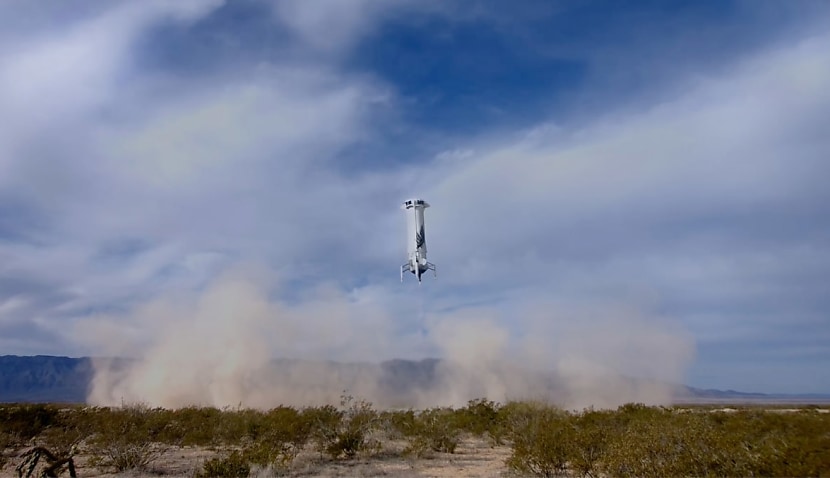
The uncrewed mission, NS-24, was previously scheduled for Monday but was delayed due to a ground system problem and then cold weather.
The rocket finally lifted off at 11:42 am local time from West Texas and hit a peak altitude of 107kms, before the capsule landed 10 minutes later with the aid of a parachute.
The 24th blast of the vehicle carried 33 experiments as well as 38,000 postcards from an educational non-profit.
Blue Origin will be speaking at Space Connect’s AusSpace24 Summit next year. To find out more and book tickets, click here.
New Shepard has been out of action since September last year following a failure on a payload flight without any astronauts onboard.
It later concluded that an engine in the propulsion module suffered a structural failure linked to operating at a temperature hotter than it was designed for.
However, Blue Origin had hoped to get its vehicle back in the air quickly.
In June this year, the company’s then-chief executive, Bob Smith, said it would launch in the “next few weeks,” but he later stepped down to be replaced by former Amazon executive Dave Limp.
Origin’s downtime allowed its biggest rival, Virgin Galactic, to pull ahead in the space tourism business and launch its first commercial flights.
Galactic is now set to retire its existing VSS Unity vehicle and replace it with a new spaceplane capable of flying twice a week.
It came alongside the company announcing it would cut 185 jobs, or nearly a fifth of its workforce, to facilitate the change to the “Delta Class” spaceships.
Michael Colglazier, Galactic’s chief executive, said the space tourism firm had already learned what it needed about spaceflight over its previous five monthly missions that flew between June and November this year.
“Unity’s flight objectives are to demonstrate our system, showcase our astronaut experience, and provide learnings for our Delta program,” he said.
“The total costs to support Unity’s flights surpass the relatively modest monthly revenues.
“The big move we’re making here is pivoting the resources that have been put into the Unity flights and redirecting them over to get the Delta ships done with the cash we have on hand.”
When Unity is formally retired, company staff who worked at Spaceport America in New Mexico will move to a new factory near Phoenix.
Test flights for the Delta Class vehicles, which can carry up to six passengers rather than four, will begin in 2025.
Virgin and Blue Origin have been fierce rivals since their inception, with Richard Branson beating off competition from Jeff Bezos to be the first to go to space in 2021.
However, the business then subsequently had to carry out maintenance for both its mothership aircraft, VMS Eve, and its SpaceShipTwo vehicle. It only resumed flights earlier this year.
Both Blue Origin and Virgin Galactic will be speaking at our AusSpace24 summit next year. To find out more and book tickets, click here.

Adam Thorn
Adam is a journalist who has worked for more than 40 prestigious media brands in the UK and Australia. Since 2005, his varied career has included stints as a reporter, copy editor, feature writer and editor for publications as diverse as Fleet Street newspaper The Sunday Times, fashion bible Jones, media and marketing website Mumbrella as well as lifestyle magazines such as GQ, Woman’s Weekly, Men’s Health and Loaded. He joined Momentum Media in early 2020 and currently writes for Australian Aviation and World of Aviation.
Receive the latest developments and updates on Australia’s space industry direct to your inbox. Subscribe today to Space Connect here.









